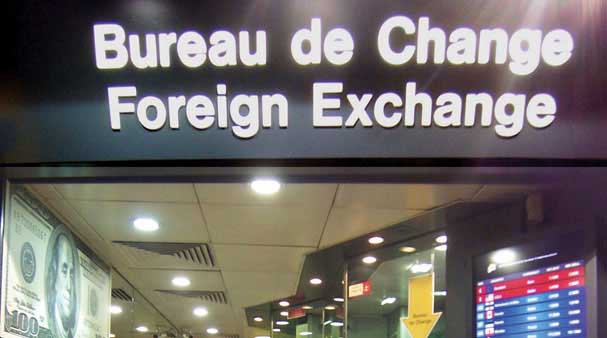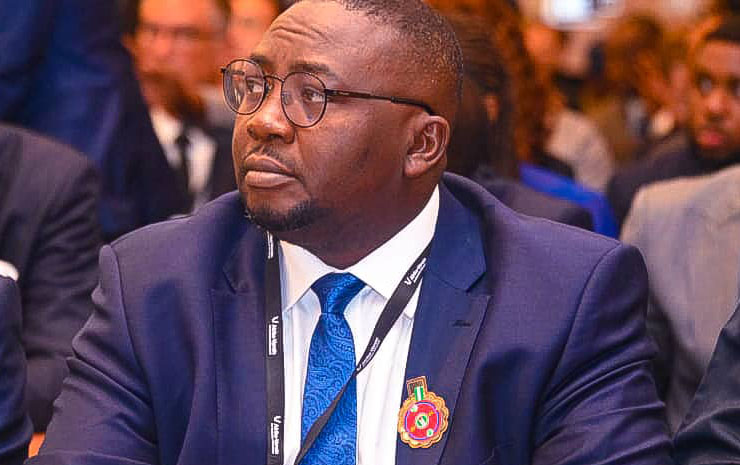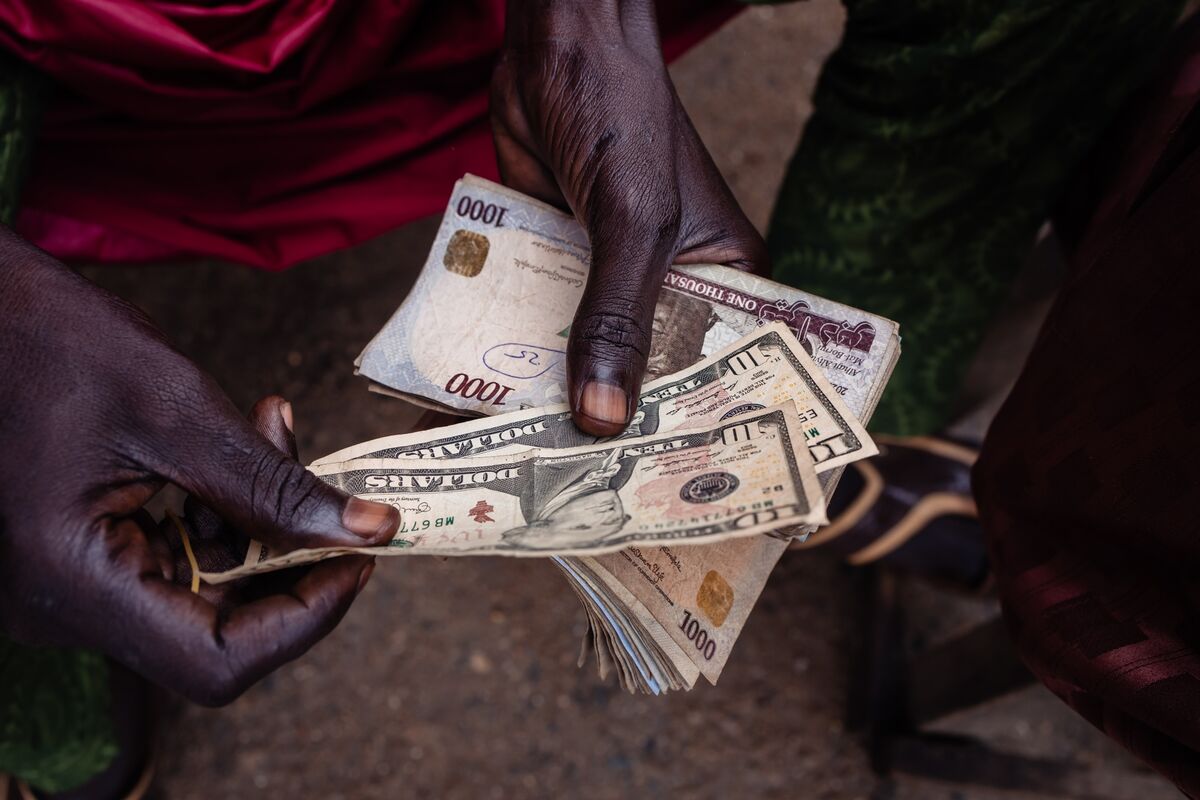Business
Forex crisis: BDCs ask CBN for autonomy to go digital

The Association of Bureau De Change Operators of Nigeria (ABCON) has called on the Central Bank of Nigeria (CBN) to give autonomy to BDCs autonomy to go digital.
This is in line with the CBN’s tech reforms for BDCs for rate convergence and ABCON’s various digitization reforms for Bureau de Change operators from 2016 to date.
This disclosure is contained in a statement issued by ABCON and seen by Nairametrics, where it noted that the exchange rate volatility has continued to give rise to the slow economic growth of Nigeria recently.
ABCON called on the CBN to diversify the scope of operation and business model of the BDC operators from a base to less cash and digital platforms.
ABCON in the statement said,
- ‘’There is no doubt that exchange rate volatility has continued to underpin the slow economic growth of Nigeria in the past years.
- As a proactive Organisation and an umbrella body of central bank licensed BDCs and In Line with the recent CBN plan reforms on BDCs to be tech savvy and Abcon’s BDCs’ various digitization reforms since 2016 to date, we urge the CBN to democratise and centralise the BDCs operational mechanism by allowing BDCs the autonomy to go digital.
- ‘’Given the above we called on the CBN to diversify our scope of operation and business model from cash base to less cash and digital platforms.
- ‘’ABCON in the launch of its vision for BDCs digitization through their exchange rate platform (nsijabdcs.com)unveiling in 2018 have long prepared their members to embrace technology.
- ‘’It is also important to note that Abcon has spent several million in IT research and developments, designs, and implementations of various layers of automation of the business transformation process from manual to digital.
- ‘’Our members have through automation now have transactions monitoring systems with installed IT office equipment and internet in their location.
- ‘’Our members now record their transactions on AWS I cloud in real-time online and extract their daily reports for return rendition all line real-time interface with the CBN.
- Our members have also sometimes in 2019 integrated with NIBSS client’s BVN verification and validation platform in carrying out their transactions with their members.’’
Collaboration with NFIU
It added,
- ‘’The BDCs through the collaborations of Abcon and NFIU registered on the GoAML platforms and Nil-returns platform for the rendition of their suspicious and cash transactions threshold to the NFIU in compliance with their AML/CFT obligations.
- ‘’We also have to ensure that each of us executes compliance undertaking and appointment of a Compliance officer. ABCON also constantly trains. retrains, sensitizes its members with regulators and security agencies as resource persons.
- ABCON as a custodian of regulation and self-regulatory organization believed that the BDCs posed the most effective, transparent pass-through effect and transmission mechanism of the apex bank foreign exchange policies. We achieved convergence in 2006, 2009 and 2018 to 2020 before the outbreak of COVID-19 in 2020.
- ‘’It is in light of the above that we are calling on the apex bank to grant a no objection approval on our various correspondences to the apex bank to grant the sub-sector the autonomy to embrace digital payment to the sub-sector to achieve rate convergence.’’
Benefits of the autonomy
ABCON listed the benefits of granting the autonomy to include, ‘’First it will lead to a true market rate discovery.
- ‘’Secondly, it will enhance the achievement of the federal Government’s harmonized foreign exchange rate policies.
- ‘’Thirdly, will make the BDC transactions monitoring system effective and conforming with their compliance obligation to statutory and regulatory requirements.
- ‘’Fourthly, it will harmonize and centralize the market and thus make the BDCs the moderating and correcting mechanism for the market. In the same vein, it will create additional employment for the over 40,000 employees direct and indirect in the BDC sub-sector.
- ‘’Finally, it will usher in Transparency, accountability and ease of supervision.’’
Business
Dangote refinery slashes diesel price to N940 per litre

Dangote Petroleum Refinery has announced another reduction in the prices of both diesel and aviation fuel to N940 and N980 per litre, respectively.
The development comes days after the refinery reduced diesel price to N1,000 per litre.
In a statement on Tuesday, the refinery said the price change of N940 is applicable to customers buying five million litres or more from the refinery, while those purchasing one million litres or more will pay N970.
According to the company, this marks the third major reduction in diesel price “in less than three weeks when the product sold at N1,700 to N1,200 and also a further reduction to N1,000 and now N940 for diesel and N980 for aviation fuel per litre”.
Speaking on the new development, Anthony Chiejina, head of communication, Dangote Group, said the new price is in tandem with the company’s commitment to alleviating the effect of economic hardship in Nigeria.
“I can confirm to you that Dangote Petroleum Refinery has entered a strategic partnership with MRS Oil and Gas stations, to ensure that consumers get to buy fuel at affordable price, in all their stations be it Lagos or Maiduguri,” he said.
“You can buy as low as 1 litre of diesel at N1,050 and aviation fuel at N980 at all major airports where MRS operates.”
He added that the partnership will be extended to other major oil marketers.
“The essence of this is to ensure that retail buyers do not buy at exorbitant prices,” he said.
“The Dangote Group is committed to ensuring that Nigerians have a better welfare and as such, we are happy to announce this new prices and hope that it would go a long way to cushion the effect of economic challenges in the country.”
Reacting to the latest development, Ajayi Kadiri, director-general of the Manufacturers Association of Nigeria (MAN), said the decision “to first crash the price from about N1,750/litre to N1,200/litre, N1,000/litre and now N940 is an eloquent demonstration of the capacity of local industries to positively impact the fortunes of the national economy”.
“The trickledown effect of this singular intervention promises to change the dynamics in the energy cost equation of the country, in the midst of inadequate and rising cost of electricity,” Kadiri said.
He said the reduction will ease the high inflation rate in the country, and have far-reaching impact on critical sectors like industrial operations, transportation, logistics, and agriculture.
Kadiri added that companies will be back in operation due to the price reduction.
Business
FG to sell DisCos managed by AMCON, banks in next three months

The federal government says it would sell off five electricity distribution companies (DisCos) under the management of banks and Asset Management Corporation of Nigeria (AMCON) in the next three months to technical power operators.
Adebayo Adelabu, minister of power, spoke in Abuja on Monday when the members of the senate committee on power visited the ministry.
The five DisCos include Abuja Electricity Distribution Company (AEDC), currently under the management of the United Bank for Africa (UBA); Benin Electricity Distribution Company, Kaduna Electricity Distribution Company, and Kano Electricity Distribution Company, managed by Fidelity Bank, while Ibadan Electricity Distribution Company is under AMCON management.
The DisCos are under the management of the banks and AMCON due to their debt burden.
Adelabu said the energy distribution assets are technical and as such, they should be under the management of technical experts.
He also said the tough decision on the DisCos has become necessary because the entire Nigerian Electricity Supply Industry (NESI) fails when they refuse to perform.
According to Adebayo, the ministry will prevail on the Nigerian Electricity Regulatory Commission (NERC) to revoke underperforming licenses and also change the management board of the DisCos if it becomes the solution.
“On distribution, very soon you will see that tough decisions will be taken on the DisCos. They are the last lap of the sector. If they don’t perform, the entire sector is not performing,” Adebayo said.
”The entire ministry is not performing. We have put pressure on NERC, which is their regulator to make sure they raise the bar on regulation activities.
”If they have to withdraw licenses for non-performance, why not? If they have to change the board of management, why not?
“And all the DisCos that are still under AMCON and Banks, within the next three months, must be sold to technical power operators with good reputations in utility management.
“We can no longer afford AMCON to run our DisCos. We can no longer afford the banks to run our DisCos. This is a technical industry and it must be run by technical experts.”
The minister further said it has become necessary to reorganise the DisCos for efficiency.
He stressed that Ibadan DisCo is too large for one company to manage.
FG TO REVOKE METRE CONTRACT FROM FIRM
Adelabu also dropped the hint that the federal government mobilised a company named Messr Zigglass with $200 million (N32 billion) to supply three million meters that were yet to be supplied to date.
“If you held N32 billion for these years, where is the interest,” he asked.
According to Adelabu, President Bola Tinubu directed that the contract be revoked.
He said the government will bridge the current eight million metering gap in the next four to five years.
The minister said the funding for the metre is coming from a seed capital of N100 billion and N75 billion.
He added that the Nigerian Sovereign Investment Authority (NISA) is coming to the aid of the ministry with the fund.
Business
Naira depreciates further at parallel market, trades at N1,260/$

The naira yesterday depreciated further to N1,260 per dollar at the parallel section of the foreign exchange (FX) market.
The latest figure represents a 2.44 percent drop from the N1,230 per dollar traded on April 19.
Currency traders, known as bureau de change (BDC) operators, quoted the buying rate at N1,230 and the selling price at N1,260 — leaving a profit margin of N30.
At the official window, the naira depreciated to N1,234.49 against the dollar on Monday — a 5.51 percent decline from the N1,169.99/$ traded on April 19.
The local currency traded at a high of N1,295 and a low of N1,051, according to FMDQ Exchange, a platform that oversees official FX trading in Nigeria.
Meanwhile, the Central Bank of Nigeria (CBN), on April 20, said it is doing everything possible to achieve a stable FX rate.
Speaking during a press conference held at the annual meetings of the International Monetary Fund (IMF) and World Bank Group, Yemi Cardoso, CBN governor, said the regulator is also working to ensure the exchange rate finds its adequate price discovery level.
“Again, to be honest, I think we should expect that there will be increases here and there, ups and downs and even from what you’ve reported yesterday, from what I gather, the naira has begun strengthening overnight,” he said.
He added that the local currency will continue to appreciate against foreign currencies.
-

 Entertainment7 days ago
Entertainment7 days agoJUST IN: Cubana Chief Priest pleads not guilty to naira abuse charge
-

 Business1 week ago
Business1 week agoX will start charging new users to post, says Elon Musk
-

 Entertainment7 days ago
Entertainment7 days agoCubana Chief Priest arrives court for naira abuse trial
-

 Health1 week ago
Health1 week agoFive benefits of drinking Okra water
-

 Celebrities6 days ago
Celebrities6 days ago‘Not see you for 6 months, impossible’ — Davido reacts to Cubana Chief Priest’s bail
-

 Business5 days ago
Business5 days agoElon Musk threatens to suspend X accounts doing engagement farming
-

 Celebrities1 week ago
Celebrities1 week agoKai Cenat threatens to sue OnlyFans model, Layla Red who leaked their chats
-

 World7 days ago
World7 days agoDubai international airport cancels flights as flood ravages runway, UAE


















